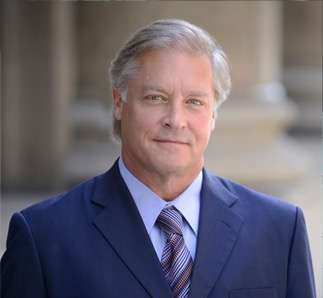Pittsburgh Area Doctor Pleads Guilty To Healthcare Fraud After Alleged Improper Prescribing Of Steroid Injections And Opioid Painkillers

Earlier this month, the Centers for Disease Control and Prevention (CDC) issued new guidelines about prescribing opioid painkillers. The new guidelines give more freedom to doctors to use their judgment about the most appropriate dosage and duration for each course of opioids they prescribe. This change is an effort to correct the negative consequences of previous versions of the guidelines; the 2016 guidelines were excessively restrictive, leading physicians to underdose patients or discontinue their prescriptions prematurely, as they were forced to choose between accusations of misconduct, on the one hand, and leaving patients with insufficient pain management, on the other. Meanwhile, everyone knows the story of how the earlier led to over-prescribing of opioids, leading to a booming market for street-level illegal resale of prescription painkillers. The decision about what is most beneficial to each patient should fall to physicians and not to law enforcement, but doctors can face criminal charges for healthcare fraud if there is strong evidence. If you are a physician or employee of a medical practice being accused of filing fraudulent health insurance claims, contact a Pittsburgh white collar crime lawyer.
Pennsylvania Healthcare Fraud Laws
The term fraud encompasses a variety of crimes in which a defendant knowingly makes incontrovertibly false statements for his or her own financial gain. In the context of healthcare fraud, this often involves making false statements on claims submitted to private health insurance companies or to Medicare or Medicaid. In some healthcare fraud cases, defendants have billed insurance companies for services they never rendered to patients (such as for office visits that never occurred), and in others, the defendants provided the services, but they were not medically necessary. In other words, the service was only an excuse to file the insurance claim, and the doctor knew that the service would not benefit the patient. This means that defendants in healthcare fraud cases may be able to use the defense that the treatments were medically necessary.
In the News
John Keun Sang Lee operated a pain management clinic in the Pittsburgh area from 1983 until May 2022, when he closed his practice and surrendered his medical license as part of the criminal case against him. From 2016 until 2020, prosecutors allege that Lee prescribed steroid injections to numerous patients that he knew would not benefit from them and that he instructed the office staff to falsely report on the insurance claims that the patients’ symptoms had improved after previous injections. He also allegedly prescribed medically unnecessary courses of oxycodone and other opioids.
Lee, 79, pleaded guilty to healthcare fraud in November 2022 and will receive his sentence in May 2023; he is currently free after posting bond. He could face a maximum sentence of ten years in prison. The court has also ordered him to pay restitution to federal and state health insurance systems. Lee’s defense lawyer argues that the case is simply a matter of the Department of Justice trying to look like it is doing something about the opioid crisis and is using elderly doctors like Lee as pawns. He argues that Lee acted reasonably in his treatment of patients.
Contact Gary E. Gerson About Healthcare Fraud Cases
A criminal defense lawyer can help you if you are facing criminal charges for ordering medically unnecessary treatments or prescribing controlled substances irresponsibly. Contact the law offices of Gary E. Gerson in Pittsburgh, Pennsylvania about your case.
Sources:
wpxi.com/news/top-stories/pittsburgh-area-doctor-indicted-accused-illegally-distributing-painkillers/EGQ4GYMLWNAP5MJ4HJPSAZ7QJI/
justice.gov/usao-wdpa/pr/former-pain-management-doctor-pleads-guilty-health-care-fraud


